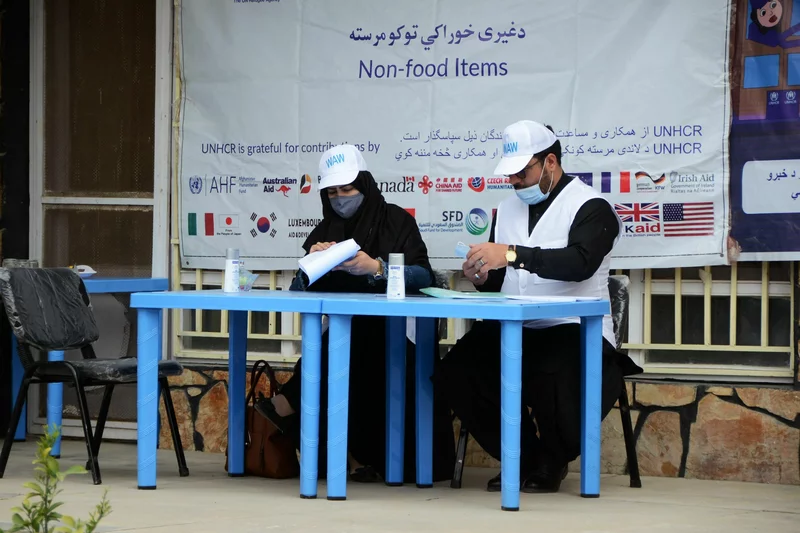On April 11, the United Nations instructed its national staff in Afghanistan — more than 3,000 men and women — to not report to offices “for their own safety, especially for our female staff,” according to spokesperson Stéphane Dujarric. About 400 Afghan women work for the U.N.
The decision came after the Taliban authorities told U.N. officials in early April that no Afghan woman would be permitted to work for the U.N. in Afghanistan “with immediate effect.”
“Several U.N. national female personnel have already experienced restrictions on their movements, including harassment, intimidation and detention,” an April 5 U.N.memo stated, prompting the order from the organization asking staff to stay at home.
This latest move is yet another blow to efforts to deliver aid during what U.N. deputy special representative for Afghanistan Ramiz Alabaro has characterized as the “world’s largest humanitarian crisis,” with U.N. estimates of nearly 20 million people in Afghanistan facing acute food insecurity – and more than 6.1 million of them on the brink of famine-like conditions.
Humanitarian groups say the Taliban decrees are having a disastrous impact in a country that was dependent on aid even before the Taliban takeover in August 2021 that resulted in international governments halting aid to the country over the fear of funding a terrorist state.
Then came the Taliban decree of December 2022 that banned Afghan women working for non-governmental agencies, further hobbling aid efforts. In regions where the ban has been strictly imposed, it has impeded the ability of aid workers to register and verify cases of families that need aid. Women employees are critical, particularly for projects involving households run by women, due to the Taliban’s gender separation rules.
The Taliban’s reputation for human rights violations and terrorism has isolated it on a global stage, contributing to the decline of the Afghan economy, triggering unemployment, poverty and widespread starvation.
“Afghanistan continues to face the highest prevalence of insufficient food consumption globally with 92 percent of households struggling to meet their basic needs,” was the assessment in the March 2023 situation report by the World Food Programme.
For the U.N., the impact of the Taliban ban began with the first “no women” decree in December. “The absence of women in our team can be directly felt in the effectiveness of our work,” said Mohammad, a U.N. employee. NPR is only using his first name because he fears repercussions from the Taliban.
After that December ban, the U.N.’s female employees could not work (though some administrative staff continued to work). In some cases, they were replaced with male colleagues, Mohammad said. “But as men, we aren’t allowed to go inside homes with female members in the absence of their mahram [a male guardian]. It makes our work very difficult if there is no mahram as in the cases of families with women heads,” he said, adding that the reach and productivity of his team had dropped by “over 50 percent” since the initial ban was announced in December. And now, with the ban reinforced by the Taliban, the U.N. has asked the men to stay home, too.
Read full report on NPR
